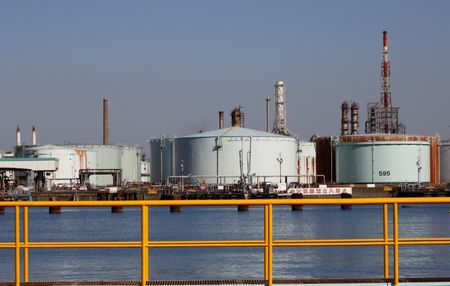
Investing.com — The bumpy ride for oil prices resembles a path previously paved with recession indicators including the COVID-19 pandemic and the Great Financial Crisis periods, but Morgan Stanley believes a recession is unlikely as U.S. economy remains on a sound footing.
“Oil prices have recently followed a path that resembles periods of considerable demand weakness and calendar spreads are already consistent with recession-like inventory builds ahead,” Morgan Stanley analysts led by Martijn Rats said in a note, though cautioned against drawing direct parallels from prior recessions.
While demand is soft, the analysts believe the current outlook for the oil market is different from previous recessions seen in the COVID-19 and Great Financial Crisis scenarios.
While a recession outcome is possible “but not our base case,” the analysts said, as they continue to expect the U.S. economy to achieve a soft landing, or avoid a recession.
The recent labour market data has come in weaker than expected, but “not by enough to change our baseline view […] Ultimately, we see the US economy exiting 2024 on fundamentally sound footing,” the analysts added, citing recent remarks from economists at Morgan Stanley.
The prior recessions were characterized by a significant deterioration in demand that led to supply surplus and hammered oil prices, but one could argue, the analysts say, that supply rather than demand will be the “key driver behind the inventory builds that oil price already discount.”
As supply comes into focus, OPEC’s actions to balance the market and the pace of non-OPEC production, led by the U.S., take center stage.
OPEC has already announced that it would delay plans to increase output by two months to December, indicating a willingness to balance the market.
While the U.S. is expected to lower production more than expected with oil prices at below $70 a barrel, Morgan Stanley estimated.
“With that in mind, we have made a few changes to our supply/demand model,” the analysts said after cutting their forecast for a surplus of crude next year to 700,000 barrels per day from a prior forecast of about 1 million bpd.
“We still estimate a surplus in 2025 but slightly smaller than before. Unless demand weakens more, we estimate Brent likely remains anchored around the mid-$70s,” they added.
Despite the delay from OPEC, and expectations for U.S. production to decline, “the catalyst that drives Brent prices back to our previous forecasts remains unclear,” Morgan Stanley said.
The analysts now see Brent prices falling to $75 a barrel by Q4, down from a prior forecast of $80 a barrel, and remaining at the level through 2025.
This post is originally published on INVESTING.




